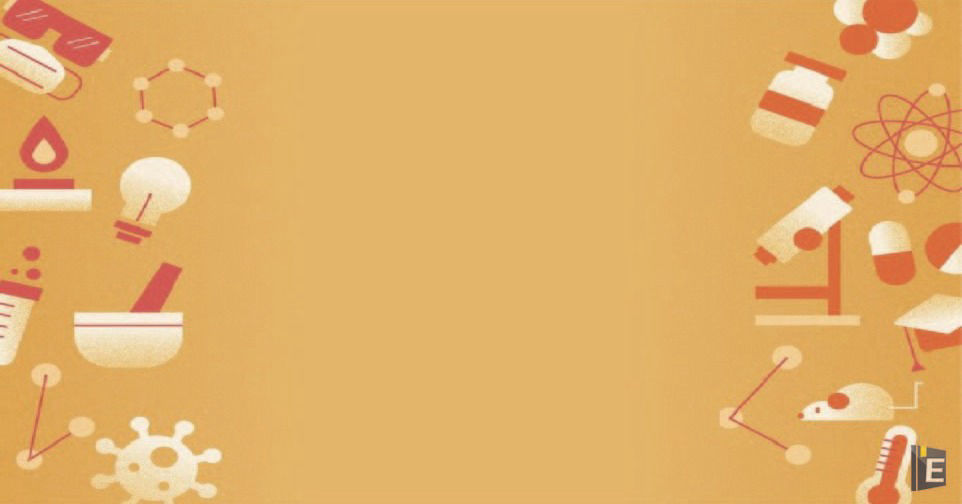Science General Knowledge Quiz with Answers

Welcome to our Science General Knowledge Quiz with Answers blog! Here, we delve into the fascinating world of science with a collection of thought-provoking questions and detailed answers. Whether you're a science enthusiast looking to test your knowledge or a curious mind eager to learn something new, our Science General Knowledge Quiz promises an engaging journey through various scientific disciplines. From physics to biology, chemistry to astronomy, each question is crafted to challenge and inspire. So, buckle up and embark on a quest to expand your understanding of the universe! Let's dive in and discover the wonders of science together.
Science General Knowledge Quiz
In this article Science General Knowledge Quiz with Answers, we are sharing the most important Science General Knowledge Questions related to Basic Science and Environment GK for those aspirants who are preparing for upcoming competitive exams.
Also, Read Latest Current Affairs Questions 2023: Current Affairs Today
"Stay ahead of the competition with our General Knowledge Mock Test and Current Affairs Mock Test!"
Science General Knowledge Quiz with Answers
Q : Dinosaur is an example of which species?
(A) rare species
(B) Threatened Caste
(C) prehistoric reptiles
(D) Demon race
Correct Answer : C
Explanation :
Dinosaurs are prehistoric reptiles that have lived on Earth from about 245 million years ago to the present. Modern birds are one kind of dinosaur because they share a common ancestor with non-avian dinosaurs.
What is the source of petroleum?
(A) Non-renewable
(B) Renewable
(C) Synthetic
(D) inconvenient
Correct Answer : A
Explanation :
Petroleum, also called crude oil, is a fossil fuel. Like coal and natural gas, petroleum was formed from the remains of ancient marine organisms, such as plants, algae, and bacteria.
The occurrence of Seasons on earth is because?
(A) The earth's axis is tilted.
(B) The rotation rate of earth changes during the year.
(C) The earth's axis points in different directions during the year.
(D) The earth is closer to the sun during summers.
Correct Answer : A
Explanation :
Earth's tilted axis causes the seasons. Throughout the year, different parts of Earth receive the Sun's most direct rays. So, when the North Pole tilts toward the Sun, it's summer in the Northern Hemisphere. And when the South Pole tilts toward the Sun, it's winter in the Northern Hemisphere.
The common element which is present in both carbohydrates and proteins is
(A) Chlorine
(B) Nitrogen
(C) Sulphur
(D) Carbon
Correct Answer : D
Explanation :
Thus, the common element which is present in both carbohydrates and proteins is carbon.
The gastric juice in the stomach of human beings is ........... and aids in the digestion of food.
(A) alkaline
(B) amphoteric
(C) neutral
(D) acidic
Correct Answer : D
Explanation :
Gastric juice is made up of digestive enzymes, hydrochloric acid and other substances that are important for absorbing nutrients – about 3 to 4 liters of gastric juice are produced per day. The hydrochloric acid in the gastric juice breaks down the food and the digestive enzymes split up the proteins.
Which of the following group of animals has excellent sight and can see things four times more than humans?
(A) Bees, Mosquitoes, Butterflies
(B) Tigers, Leopards, Bulls
(C) Snakes, Silkworms, Lizards
(D) Kites, Eagles, Vultures
Correct Answer : D
Explanation :
Thus, Kites, Eagles and Vultures can see four times more than humans.
The nature of environmental studies does not advocate that:
(A) children make fewer mistakes.
(B) children get space to learn by doing
(C) children ask a lot of questions
(D) children get a lot of space to explore
Correct Answer : C
Explanation :
Hence, we conclude that children making fewer mistakes is not advocated by EVS.
Which one of the following diseases may be caused by stagnant water?
(A) Malaria
(B) Polio
(C) Pneumonia
(D) AIDS
Correct Answer : A
Explanation :
Malaria may be caused by stagnant water. Water pollution can often lead to increased breeding of mosquitoes that carry parasites.
Which one of the following places in our country is a "Cold Desert"?
(A) Jaisalmer
(B) Ladakh
(C) Meghalaya
(D) Darjeeling
Correct Answer : B
Explanation :
Ladakh is a cold desert situated in India. It lies in great Himalayas on eastern side of jammu and Kashmir.
Bronze is a mixture of two metals. The names of these two metals are
(A) Copper and Zinc
(B) Copper and Iron
(C) Copper and Tin
(D) Aluminium and Tin
Correct Answer : C
Explanation :
Bronze is mainly an alloy of copper and tin. Bronze is primarily made up of copper and tin is present in lesser proportions. Instead of tin other metals, non-metals and metalloids are also mixed with copper. Bronze is used in making weapons, coins, medals etc.



